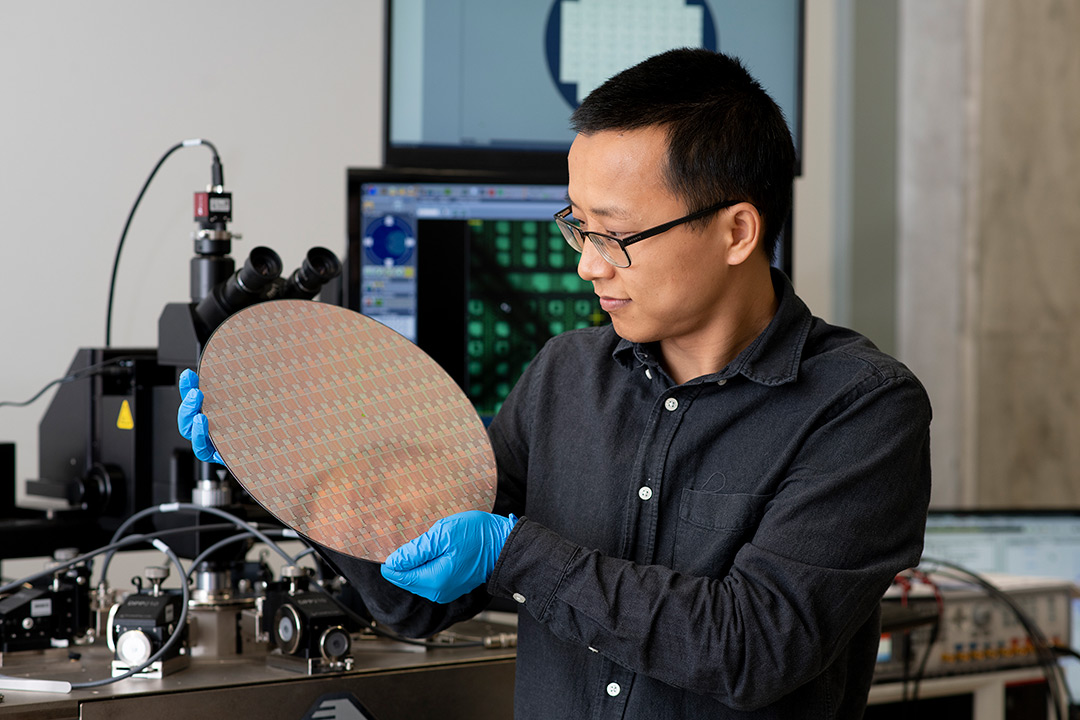Ni awarded NSF CAREER funding to develop advanced computer memory and devices
Kai Ni leads discovery of ferroelectric capabilities as part of university research
Gabrielle Plucknette-DeVito
Kai Ni, an assistant professor of electrical engineering and expert in semiconductor design, received a 2023 CAREER Award from the National Science Foundation.
Kai Ni was awarded a National Science Foundation CAREER Award to improve computing memory through the use of ferroelectric materials and capacity.
The assistant professor of electrical and microelectronic engineering in RIT’s Kate Gleason College of Engineering, Ni has been at the forefront of advancing ferroelectric memory, a familiar but never widely adopted technology that has the potential to meet the growing demand for more energy-efficient computing performance.
“The appetite for semiconductors just keeps growing. With the data we are generating every day, we need ways to process it, and we need to gather and extract information from that data. We will need semiconductors to do that with better computing and storage hardware,” said Ni, who received $596,153 for “High performance ferroelectric memory for in-memory computing,” a five-year project.
Ni’s work in the area of ferroelectric memory is part of an emerging field in the development of high performance and energy-efficient storage and computing devices.
Better integrating ferroelectric processes is a way to alleviate a bottleneck that occurs in conventional computing hardware as data is frequently moved from memory to computing units—movements that consume high volumes of energy and latency.
“This memory has huge potential. It is very energy efficient, so it can save power,” Ni explained. “Ferroelectric is very unique. It is very dense, and we can make very small devices with ferroelectric. You don’t have to develop new materials or new equipment or add a new investment to make the memory. It is cost effective, scalable, high performance, energy efficient, and enables endless applications.”
Ni and his research team are evaluating stages required to enable ferroelectric for added functionality. This entails developing improved processes to replace large level cache capacity, which consumes high volumes of power. Improved memory can accelerate artificial intelligence (AI) by better mapping AI models to the memory and accelerating processing.
“It could also potentially transform the solid-state drive, hard disk and reduce operational voltage improve energy efficiency and speed. That will be a big plus,” Ni said.
RIT has more than a dozen NSF CAREER award winners working at the university.
CAREER Awards are just one of several indicators of a university’s growing research initiatives, funding sources, and faculty innovation. The NSF receives thousands of proposals yearly, and only 14-20 percent across all directorates of the U.S. agency are funded. Its mission is to support high risk, high pay-off ideas—projects that are leading-edge but also well-integrated into academia as a way to train next-generation scientists and engineers. The awards are given to faculty members who have the potential to serve as role models and mentors.













